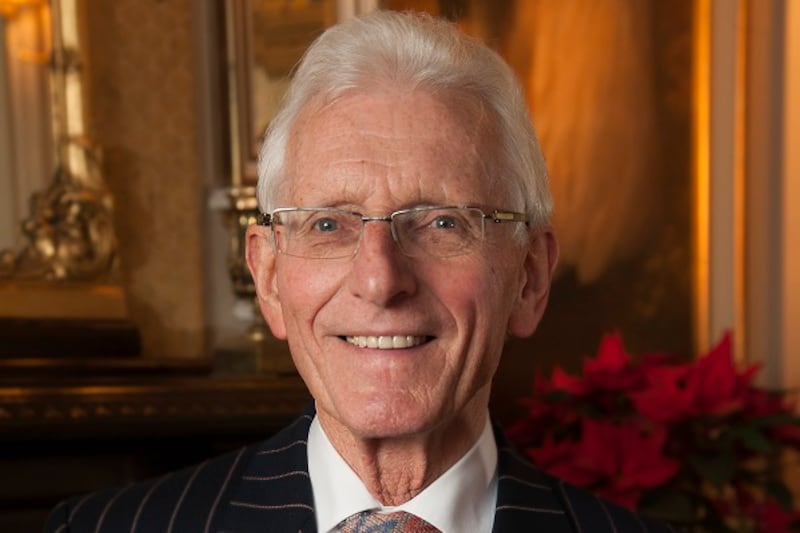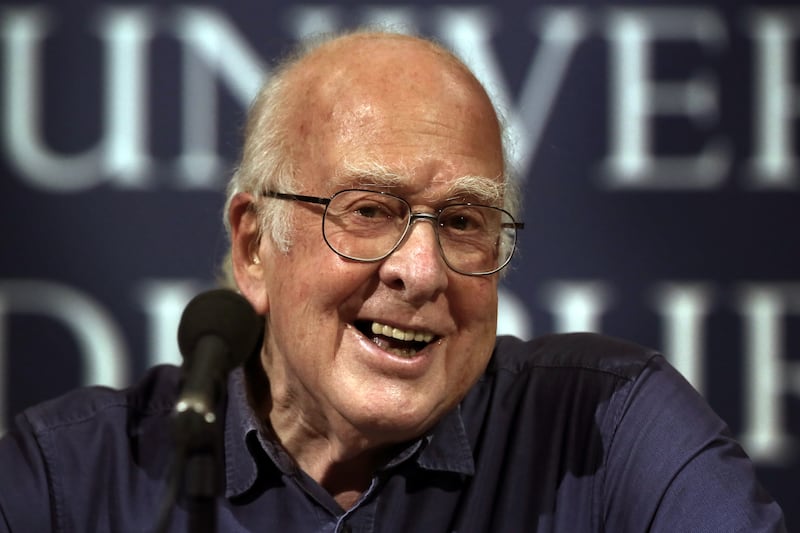For decades, Professor Peter Higgs was as unknown to most of the world as the particle that bears his name.
It was in 1964 that he dreamed up what would become known as the Higgs boson but the quiet physicist waited for science to catch up with his ground-breaking ideas for almost 50 years.
Prof Higgs’s proposal was that particles acquire mass by interacting with an all-pervading field spread throughout the universe. The more they interact, the more massive and heavy they become.
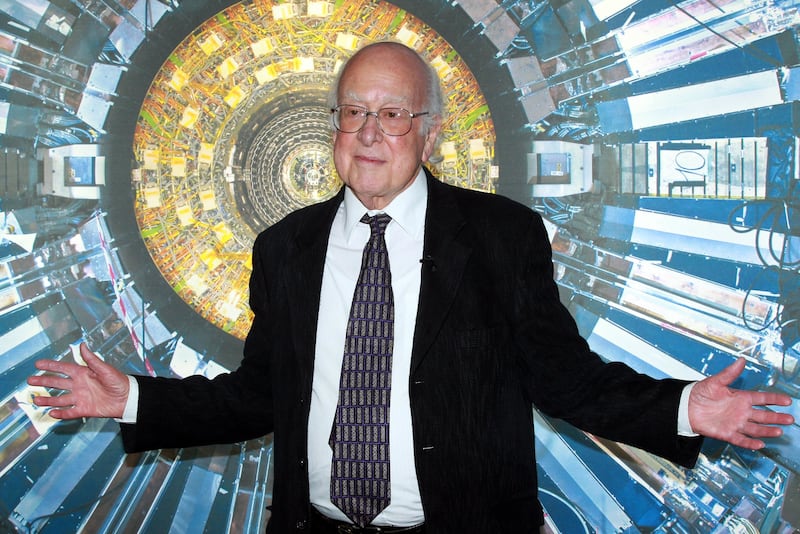
A “boson” particle was needed to carry and transmit the effect of the field.
Without the Higgs boson to give matter mass and weight, there could be no Standard Model universe. If it was proved not to exist, scientists would have to tear up the theory and go back to the drawing board.
His concept sparked a 48-year hunt which culminated in July 2012 when a team from the European nuclear research facility at Cern in Geneva announced the detection of a particle that fitted the description of the elusive Higgs.
Scientists used the world’s biggest atom-smashing machine, the £2.6 billion Large Hadron Collider on the Swiss-French border, to track down the missing particle.
Prof Higgs wiped away a tear when the historic significance of the findings became apparent during the announcement at a seminar at the Cern headquarters.
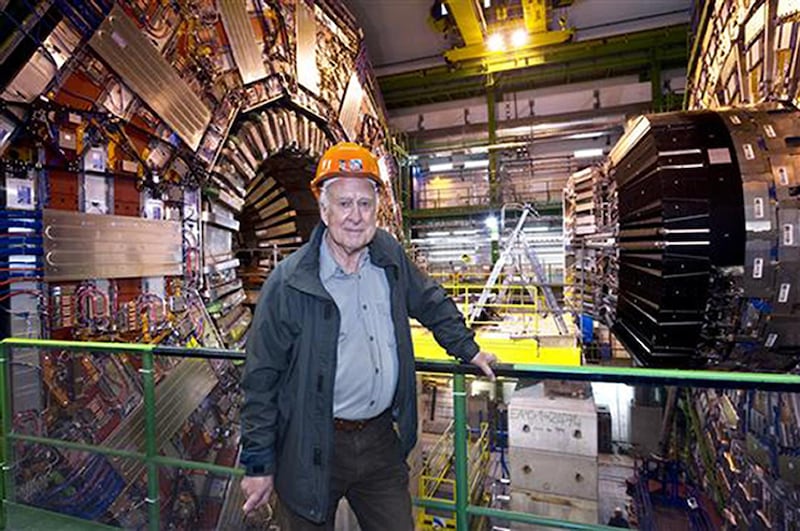
“I never expected this to happen in my lifetime and shall be asking my family to put some champagne in the fridge,” he said.
The discovery thrust the theoretical physicist into the limelight when he was aged 83 but it was not a situation the unassuming scientist was comfortable with – describing his new-found status as “a bit of a nuisance”.
Never someone who went in the pursuit of fame, Peter Higgs was born in Newcastle in 1929, the son of a BBC sound engineer.
After his family moved to Bristol, he proved a brilliant pupil at Cotham Grammar School before going on to read theoretical physics at King’s College London.
A five-decade long career then began when he graduated with a First Class Honours in 1950.
After failing to secure a lectureship at King’s College, he set off for Scotland and the University of Edinburgh. He remained there until retiring from the post in 2006 and assumed the title of emeritus professor.
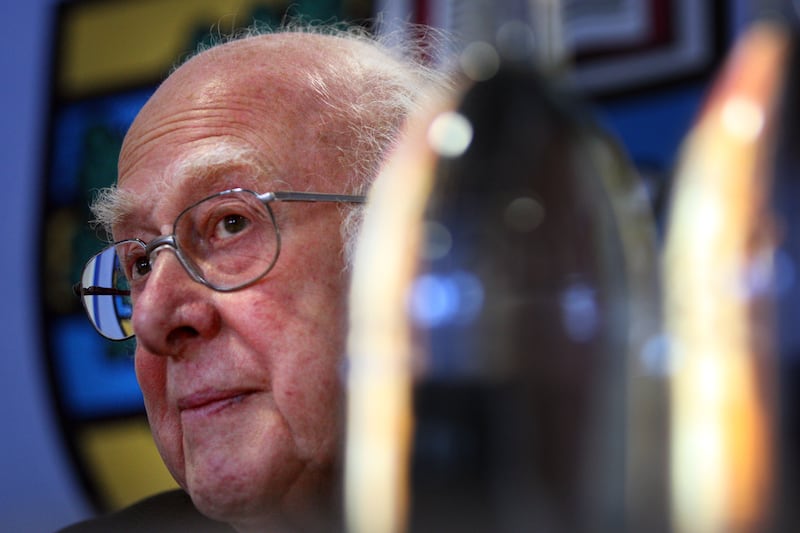
His contribution to physics has long been recognised within the scientific world – with more than ten honorary degrees and dozens of academic prizes since the 1980s.
But he once revealed he had turned down a knighthood in 1999 as he did not want any title.
“I got the offer from Tony Blair in November 1999,” he said. “I would have been included in the millennium honours and I said ‘no thank you’.
“I thought anything of that sort was premature and, anyway, I didn’t want that sort of title, thank you. I actually didn’t want any sort of title.”
The 2012 discovery did, however, see him earn the Nobel Prize in Physics, which he shared with Belgian Francois Englert – but he said he only heard he won the prestigious award when a woman stopped to congratulate him in the street.
He did accept recognition from the Queen in 2014 when he was appointed a Companion of Honour during a ceremony at the Palace of Holyroodhouse – an honour that does not bring a title.
Speaking after the event, Prof Higgs said: “It was quite a surprise to find I was first on the list and first in line, so I didn’t have anyone in front of me to imitate and make sure I got the movements right.”
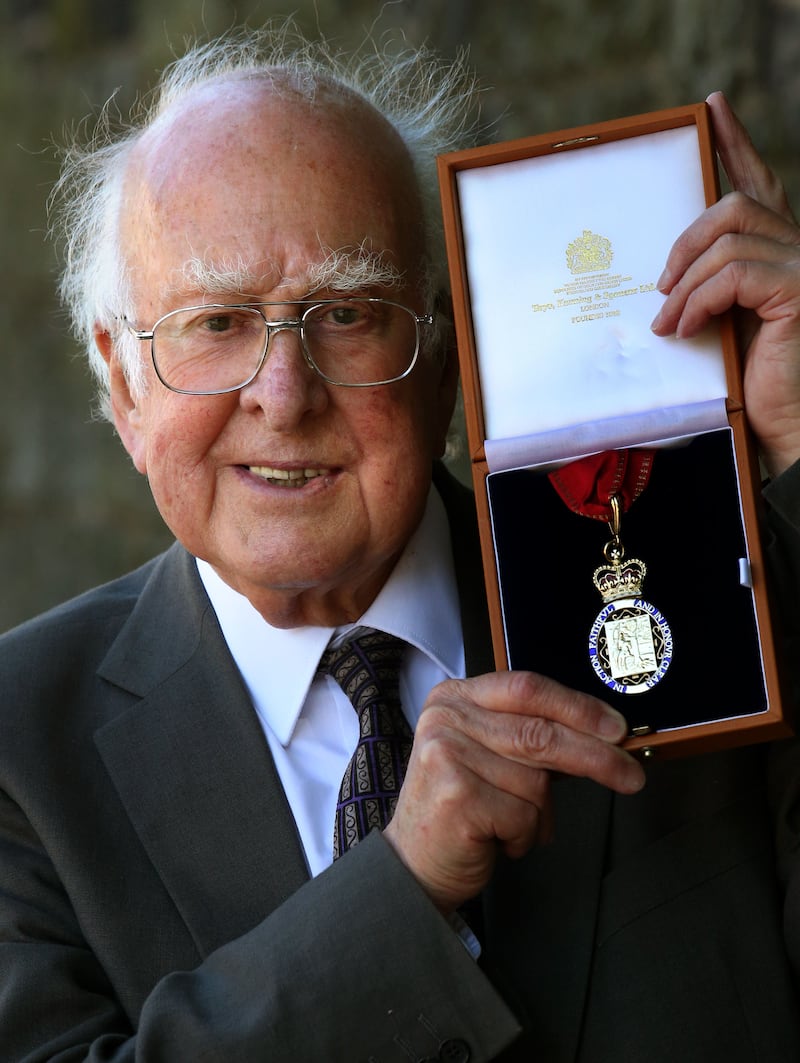
Described by friends and colleagues as very unassuming and shy, he found himself being approached for autographs in the street in later life.
He was also uncomfortable with his name alone being linked to the particle, saying the publicity had “neglected” to give credit to the other people involved.
While he might have celebrated the discovery and awards he received privately, to the outside world he appeared uncomfortable with the interest his work had provoked.
He said the discovery of the Higgs boson had led to a “disturbance” in his lifestyle.
Beyond personal honours for Prof Higgs, the University of Edinburgh opened a research centre named after him. The Higgs Centre for Theoretical Physics brings together scientists from around the world to seek an even deeper understanding of how the universe works.
In 2011 he received the Edinburgh Award for his outstanding contribution to the city he chose to call home for more than half a century and where his two sons and two grandchildren live.
Furthermore, he was granted the freedom of the cities of Bristol, Newcastle and Edinburgh in the last few years.




